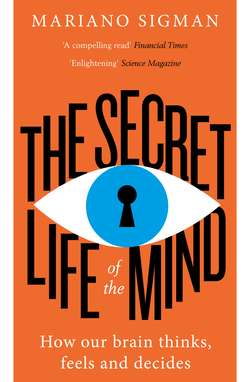Читать книгу The Secret Life of the Mind: How Our Brain Thinks, Feels and Decides - Mariano Sigman - Страница 23
Émile and Minerva’s owl
ОглавлениеIn Émile, or Concerning Education, Jean-Jacques Rousseau sketches out how an ideal citizen should be educated. The education of Émile would today be considered somewhat exotic. During his entire childhood there is no talk of morality, civic values, politics or religion. He never hears the arguments we parents of today so often go on about, like how we have to share, be considerate of others, among so many other outlines of arguments for fairness. No. Émile’s education is far more similar to the one Mr Miyagi gives Daniel LaRusso in The Karate Kid, pure praxis and no words.
So, through experience, Émile learns the notion of property at twelve years old, at the height of his enthusiasm for his vegetable garden. One day he shows up with watering-pot in hand and finds his garden plot destroyed.
But oh, what a sight! What a misfortune! [ … ] What has become of my labour, the sweet reward of all my care and toil? Who has robbed me of my own? Who has taken my beans away from me? The little heart swells with the bitterness of its first feeling of injustice.fn12
Émile’s tutor, who destroyed his garden on purpose, conspires with the gardener, asking him to take responsibility for the damage and gives him a reason to justify it. Thus the gardener accuses Émile of having ruined the melons that he’d planted earlier in the same plot. Émile finds himself embroiled in a conflict between two legal principles: his conviction that the beans belong to him because he toiled to produce them and the gardener’s prior right as legitimate owner of the land.
The tutor never explains these ideas to Émile, but Rousseau maintains that this is the best possible introduction to the concept of ownership and responsibility. As Émile meditates on this painful situation of loss and the discovery of the consequences of his actions on others, he understands the need for mutual respect in order to avoid conflicts like the one has just suffered. Only after having lived through this experience is he prepared to reflect on contracts and exchanges.
The story of Émile has a clear moral: not to saturate our children with words that have no meaning for them. First they have to learn what they mean through concrete experience. Despite this being a recurrent intuition in human thought, repeated in various landmark texts of the history of philosophy and education,fn13 today hardly anyone follows that recommendation. In fact, almost all parents express an endless enumeration of principles through discourse that we contradict with our actions, such as on the use of telephones, what we should eat, what we should share, how we should say thank you, sorry and please, not be insulting, etc.
I have the impression that the entire human condition can be expressed with a piñata. If a Martian arrived and saw the highly complex situation that suddenly arises when the papier mâché breaks and the rain of sweets falls out, it would understand all of our yearnings, vices, compulsions and repressions. Our euphoria and our melancholy. It would see the children scrambling to gather up the sweets until their hands can’t hold any more; the one who hits another to gain a time advantage over a limited resource; the father who lectures another kid to share their excessive haul; the overwhelmed youngster crying in a corner; the exchanges on the official market and the black market, and the societies of parents who form like micro-governments to avoid what Garrett Hardin called the tragedy of the commons.
